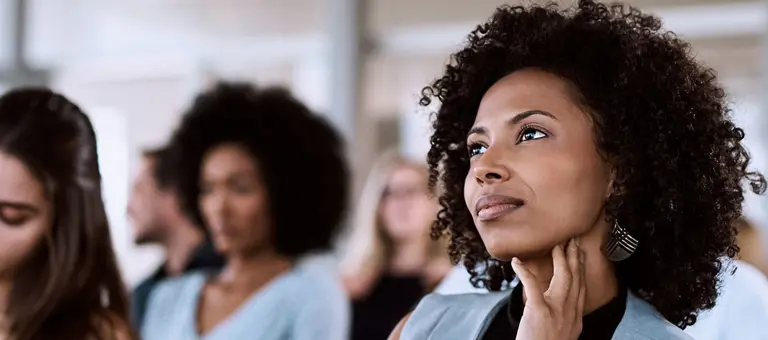
Black hair - an indicator of success?
18 October 2019
This is the first in a series of blogs to celebrate Black History Month. This year, we are focusing on the experience of our colleagues of African and Afro-Caribbean descent.
“A young man came to me looking for professional advice. He had been looking for work and wanted to know what he could be doing differently. I told him that he needed to cut off his dreadlocks simply because dreadlocks look unprofessional and I would never hire someone with dreadlocks”. I am paraphrasing quite a bit here but these were the words spoken by a well-known politician at a diversity event I attended during university that was aimed at students from an African or Caribbean background. Upon hearing those words I immediately examined the braids on my head and thought to myself would my hairstyle ever be considered as unprofessional? I looked around at the many faces in the room, faces of confusion and disappointment. I could tell we were all thinking the same thing, what did this young man’s dreadlocks have to do with his ability to work in a professional environment?
My encounter with the politicisation of black hair didn’t stop here, in fact it didn’t start here. I was born in Nigeria and I had the chance to attend school there. At my school it was the norm for all the girls to always have their hair cut very low, I never really thought anything of it. In fact, I looked forward to the fortnightly routine of sitting in my aunt’s chair while she carefully glided the clippers through my curls. She would take a look at my hair, grin, clasp my face in her hands and say “now you look neat”. I would admire my freshly cut hair in the mirror and be so grateful to my aunt that she had me look presentable. From a young age, I was already being exposed to the perceptions associated with certain hairstyles.
An example of the unnecessary weight placed on black hair was the aggressive ban on afro hair in a prestigious girls’ school in South Africa as it was seen as ‘untidy’ and ‘unladylike’. You can also find some of these experiences documented in the Netflix film ‘Nappily Ever After’. I personally think the acting in this is shambolic but the key message still stands. Black hair should not be this political. I have had many friends ask my opinion on what hairstyles would be deemed appropriate for work or whether or not it’s acceptable to dye their hair a certain colour. I’ve also had friends tell me they’ve worn a certain hairstyle to work and were treated differently by their colleagues. It is clear that my experiences of having to worry about what image I’m portraying by having a certain hairstyle echoes those of many people within the black community. This is why it comes as no surprise that the black haircare industry is worth billions of dollars.
I myself have fallen into the trap of dictating what I feel is acceptable and unacceptable. Nowadays I am of the opinion that hair should not rule you. It does not indicate success, it does not indicate passion and it certainly does not indicate someone’s ’capabilities. All it should indicate is that I woke up in the morning and decided to wear my hair like this. It should be that simple.
Look out for the blog posts in the coming weeks where we explore different experiences and perspectives
Is digital and AI delivering what your business needs?
Digital and AI can solve your toughest challenges and elevate your business performance. But success isn’t always straightforward. Where can you unlock opportunity? And what does it take to set the foundation for lasting success?